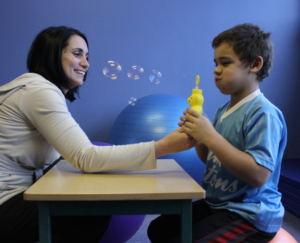Our Speech Therapy and Language Services follow a multisensorial and client-based approach while focusing on the stages and areas of speech and language development.
Achieve Therapy Centre is helping children in the community to achieve their full communication potential.
Speech therapy helps children with:
Language or communication difficulties are occurring if a child is not understanding what is being said to them or is not able to express themselves effectively. They may also have a smaller vocabulary compared to other children their age.
Speech difficulties are occurring if a child is having trouble with stuttering, pronouncing certain speech sounds, or if the words they say are not clear. These challenges make them more difficult to understand than their age matched peers.
Verbal dyspraxia is a motor difficulty which affects the production of sounds and words. Articulatory function is disregulated. Normally, the brain synchronizes the mechanism that produces sounds and words by articulating the tongue, lips and breath, amongst other things. In a person with dyspraxia, that coordination does not happen as effectively. They can speak in a more comprehensible manner by applying a more determined effort.
Verbal motor difficulties manifest in different ways. Here are some examples:
- Difficulty saying consonants and vowels.
- Lost and found word phonomena: the child can’t reproduce a word on demand or on imitation but can produce the word spontaneously.
- Discontinuity between syllables: the child stretches a phoneme or separates the word in two between syllables.
- The child demonstrates an incapacity to master tone, intensity, accentuation, intonation and voice modulation to express his emotions or to give importance to what he attempts to communicate.
Reading difficulties are occurring if a child is reading at a lower level than what is expected for their age or if they are reading but not understanding the content of what is being read. There may be some pre-literacy (pre-reading) or phonological awareness difficulties which include knowing the sounds of letters.
Children who are experiencing social communication challenges often struggle to communicate in group settings especially with their peers. These children likely communicate well at home with their parents but have more difficulty at school or daycare. Additionally, some children may have difficulty reading a person’s non-verbal or “body” language. Non-verbal language is necessary to know when to appropriately take a turn in conversation.
Cognitive-communication disorders are due to an impairment of cognitive processes, this may affect attention, memory, abstract reasoning, awareness and executive functioning skills. These may be due to developmental circumstances or from head injuries, strokes or degenerative diseases.
Augmentative and Alternative Communication (AAC) is often incorporated in therapy to help express thoughts, wants and needs without relying on verbal communication. It is not always used to replace verbal speech production but to enhance the overall communication skills of an individual. This may include sign language, symbols or pictures, or use of technology.
Some examples of feeding and swallowing difficulties are when a child coughs or gags during feeding, if they have trouble breathing when drinking/ eating or if they are eating certain textures or foods while avoiding others.
Here are some examples of Central Auditory Processing Disorder:
- Difficulty differentiating between similar sounds, such as m/n, t/d, n/l, s/ch, f/s, f/v.
- Difficulty understanding rapid speech.
- Difficulty dissociate background noise from conversation and therefore being easily distracted by ambient noise.
- Tiring quickly when they must listen closely.
- Affected auditory memory: difficulty remembering names, dates, etc.
- Difficulty following complex, multiple or lengthy directions.
- Confusing similar sounds and words.
- Asking people to repeat often.
- Not participating in conversation.
- Answering inappropriately.
- Working better alone than in a team.
- Presenting with learning difficulties in English (reading and writing) and in mathematics (multiplication tables and solving equations).
- Receiving academic results that fall short of the child’s abilities.
We foster improved conversations by developing the child or the adult’s abilities and concentration. We work on the person (non-verbal language, intensity and adapted verbal qualities) as well as the message (clear and concises messages, using a familiar vocabulary).
Children who experience CAS or Motor Speech Difficulties often have a good understanding of language and know exactly what they would like to express verbally but they cannot. These children have difficulty learning and carrying out the complex movement required for speech. Children with CAS or Motor Speech Difficulties require a specialized approach to speech therapy.
At Achieve, we use a family centered approach to speech-language therapy that will ensure your child is better understood and more confident when communicating with those in his or her environment.
We also offer targeted services: Preschool Language Evaluation and Reading and Writing Therapy.
Speech therapy is provided by a certified Speech-Language Pathologist to improve language, speech, reading, social communication, cognitive-communication disorders, feeding/swallowing and use of augmentative and alternative communication.


